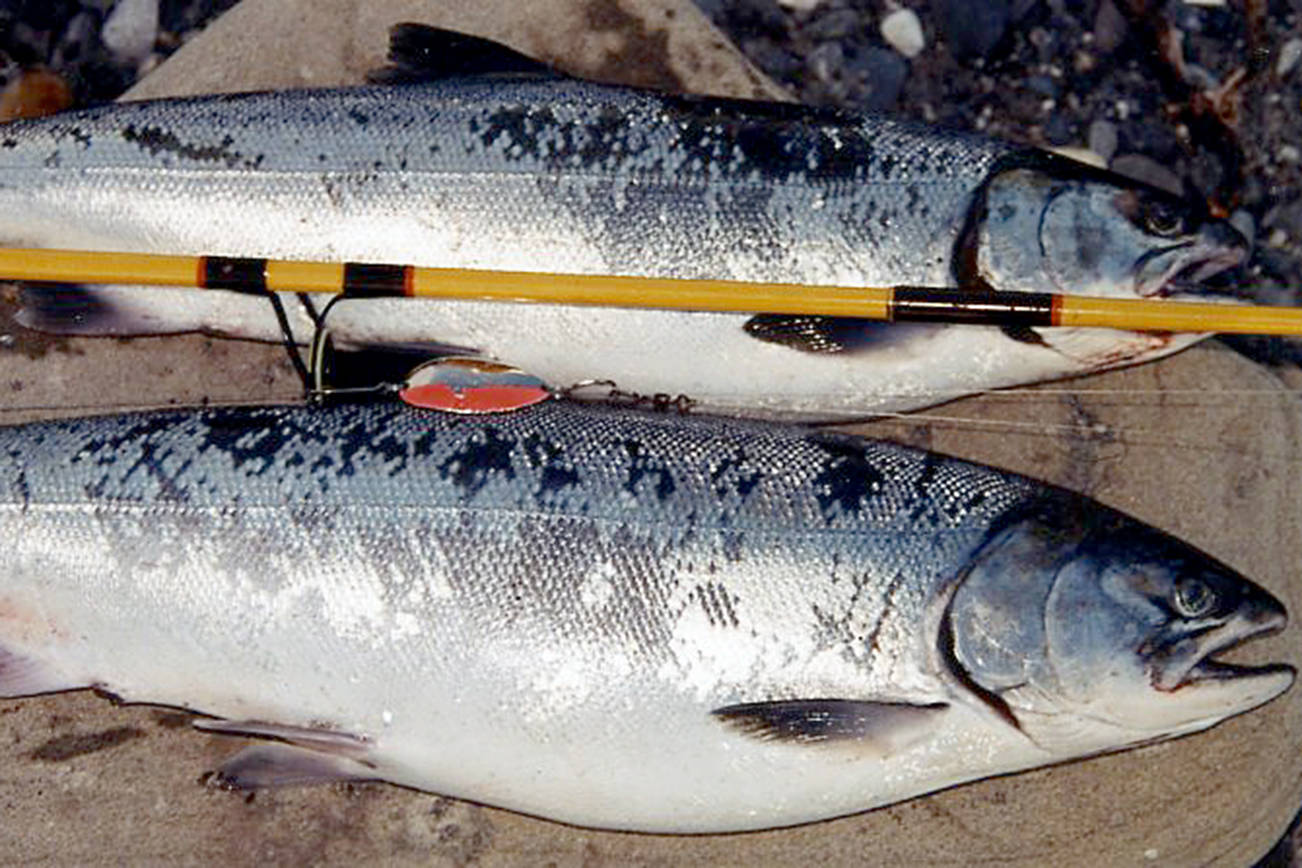The state Department of Fish and Wildlife’s proposed increases to hunting and fishing license fees are still on the table in the Legislature, even though bills related to them in the state House failed to make it out of committee by the last legislative cutoff date.
“The department’s commercial and recreational license fee bills didn’t move out of the House before cutoff but are considered ‘necessary to implement the budget,’” said Fish and Wildlife legislative liaison Raquel Crosier. “They will be a part of budget negotiations and aren’t subject to the regular legislative cutoffs.”
The bill regarding recreational fishing and hunting licenses is House Bill 1647. It calls for the increase of hunting licenses across the board for both residents and nonresidents. A combination deer, elk, bear and cougar license, currently $85, would rise to $93. Nonresidents had been paying $780 for the same tag, under the legislation it would rise to $850. Both would pay an $10 annually for migratory bird licenses.
Catch record cards for sport fishermen would no longer be included in the license fee; cards vary in cost depending on species, but run about $5 to $9 each under the proposal. A combination fishing license would rise from $45 to $54 for residents and from $108 to $126 for nonresidents.
The bill regarding commercial fishing licenses is Substitute House Bill 1597. Under the legislation, most salmon-related commercial fishing fees would either stay the same or rise slightly for residents, and drop significantly for nonresidents. The current fee for a Grays Harbor/Columbia River salmon gillnet license would stay the same, $585; but for nonresidents it would drop from $890 to $635. Those same costs apply to Willapa Bay/Columbia River licenses. Salmon charter licenses would climb by $80 from $380 to $460 for residents, but would drop for nonresidents by $175, from $685 to $510. Both of those licenses also require $135 in surcharges.
Non-salmon commercial license fees would climb for both residents and nonresidents. For example, a commercial coastal Dungeness crab license for residents would rise from $400 to $430, and a nonresident license would climb from $625 to $705.
The proposal also requires all crew members, except family members, have a license to participate in commercial fisheries. Fish buyers and processors would see a change in their license cost as well.
Since the fee increases are now part of the Governor’s budget package they will be acted upon by the legislature at some point this session or in a special session if an agreement on the budget can’t be reached by the last day of the 2017 session, April 23. In the meantime, these numbers could change between now and then.
“We are continuing to work with stakeholders to right-size the proposals to make sure they provide enough funding to provide enhanced hunting and fishing opportunities but don’t price people out,” said Crosier.


